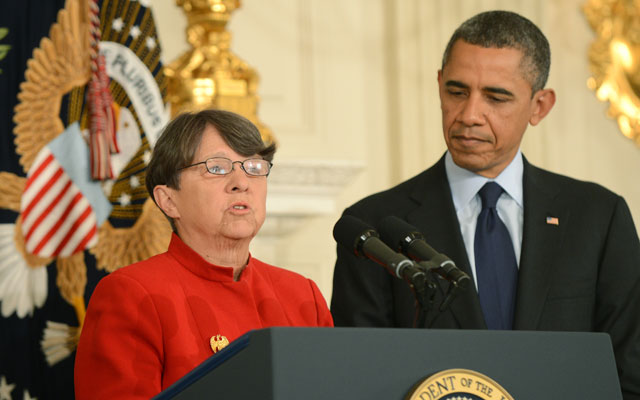President Obama, moving quickly to complete the lineup for his second-term regulatory team, nominated attorney Mary Jo White yesterday to chair the Securities and Exchange Commission (SEC). The selection is a critical one, as the agency is still struggling to complete the rulemakings required under the Dodd–Frank financial regulation act, while facing pressure from the courts and Congress to improve the sometimes sketchy quality of its regulatory analysis.
The SEC has been a key regulatory agency since it was launched in 1934 under the leadership of Joseph Kennedy Sr. But it has never before been challenged as it is now. Under Dodd–Frank, the agency was required to complete some 95 rulemakings, ranging from tightened regulation of derivatives to reform of corporate governance rules. Nearly three years after Dodd–Frank’s passage, the SEC—like other agencies such as the Commodity Futures Trading Commission—finds itself far behind schedule. As of the beginning of 2013, only 33 rulemaking proceedings have been completed. Deadlines have been missed for 49 more.
But the quantity of the SEC’s output may be a lesser concern than the quality of its analysis. In 2011, an appeals court unceremoniously threw out the Commission’s rules on shareholder proxy access, finding that the agency’s analysis of the rules’ cost and effect was severely flawed. This wasn’t a one-time hiccup—the problems found by the appeals court, many say, have long been typical of the SEC’s approach to analysis. The controversy led to the passage last year by the House of Representatives of a bill to require the SEC to complete formal cost-benefit analysis before adopting significant new rules.
It is unclear how well Ms. White’s background prepares her for these challenges. Her background is in litigation—as a prosecutor and defense lawyer—rather than as an administrator or policymaker. This presents the danger that she may see maximizing jail terms rather than expanding wealth creation as her goal. Alternatively, her litigation background could be an advantage—if it leads to focus on prosecuting actual crimes (think Bernie Madoff) rather than expanding regulation. These are questions that should be explored by Senators as they consider confirmation of White to this position.
The SEC may be little known by the average citizen, but its policies have a direct and substantial impact on the lives of Americans and on the American economy. The Senate should take its constitutional duty seriously, and thoroughly examine the qualifications and intentions of Ms. White before putting her in charge.


























